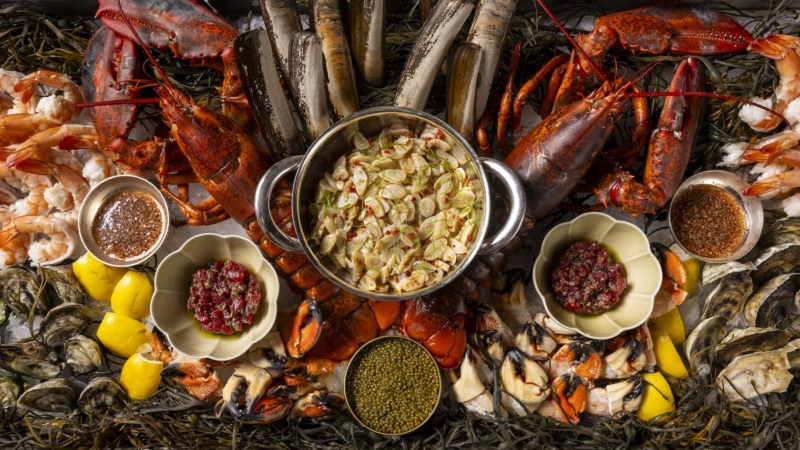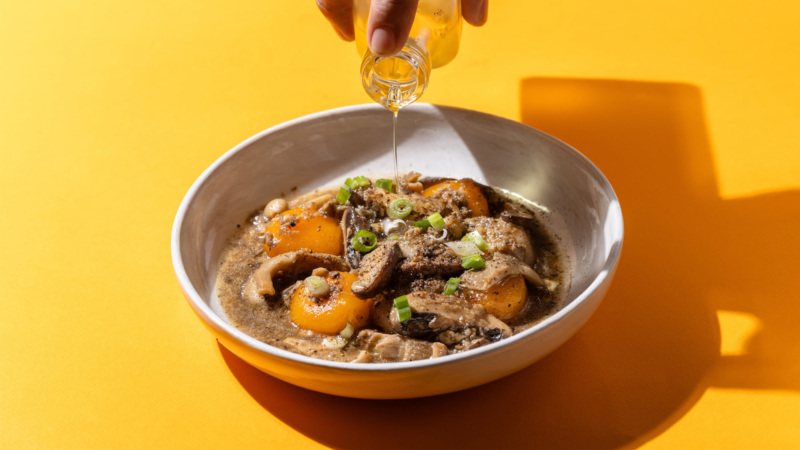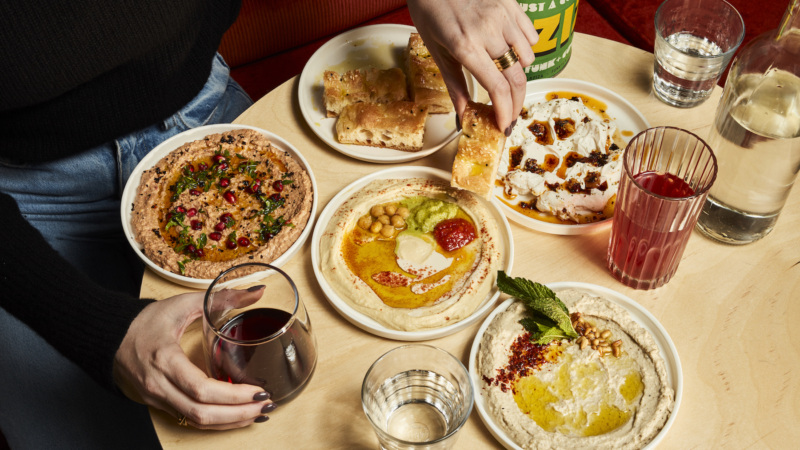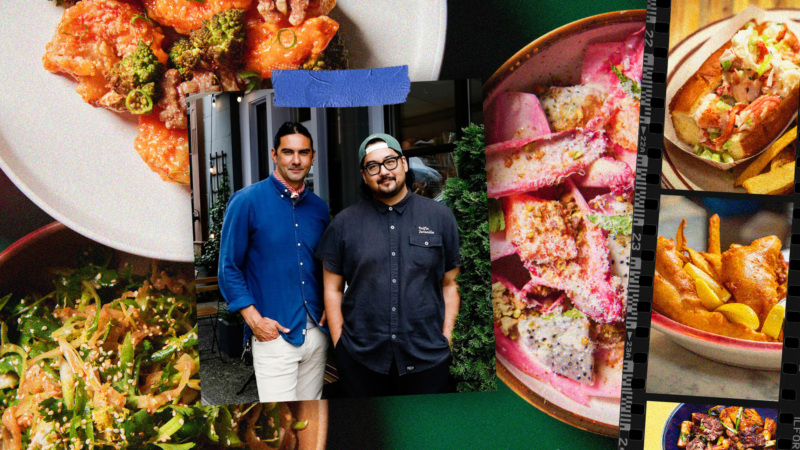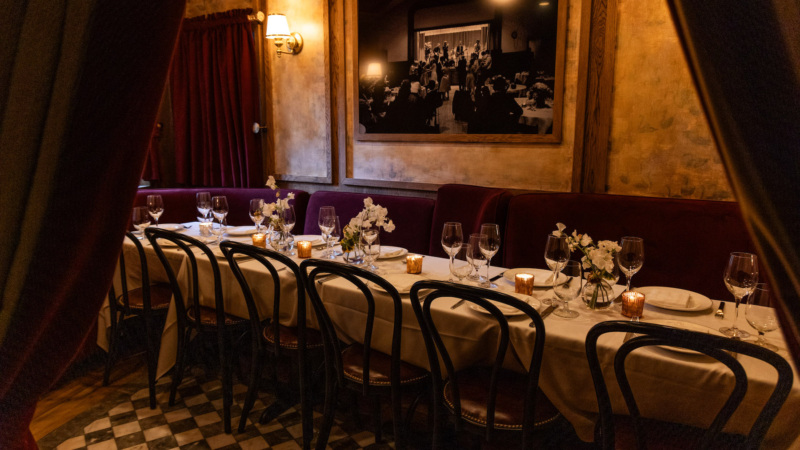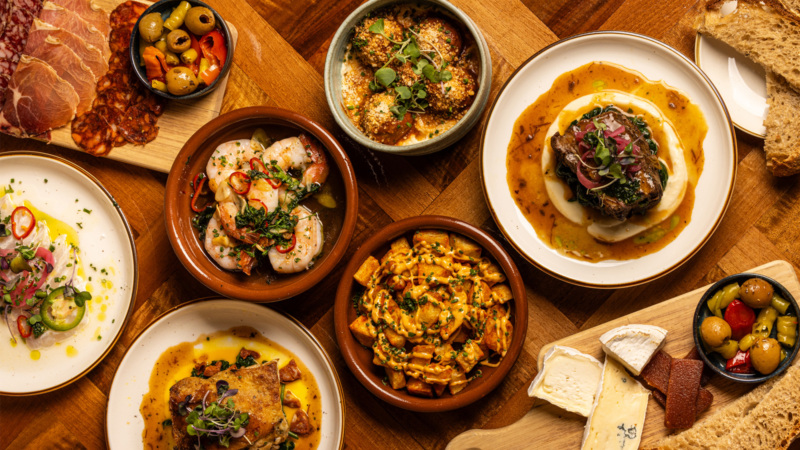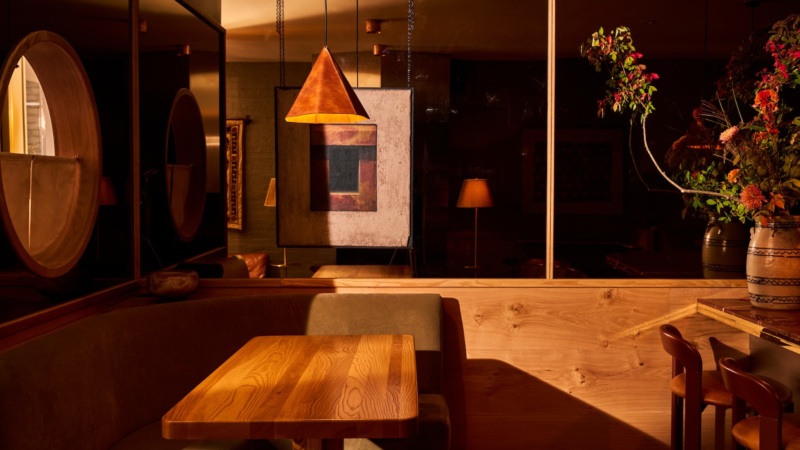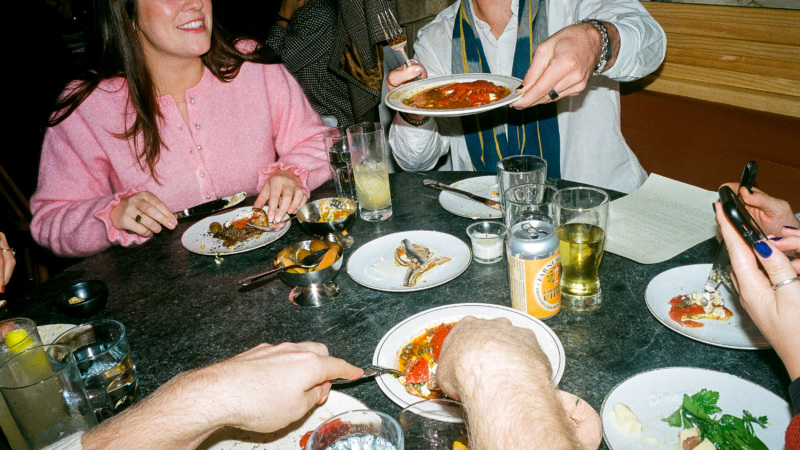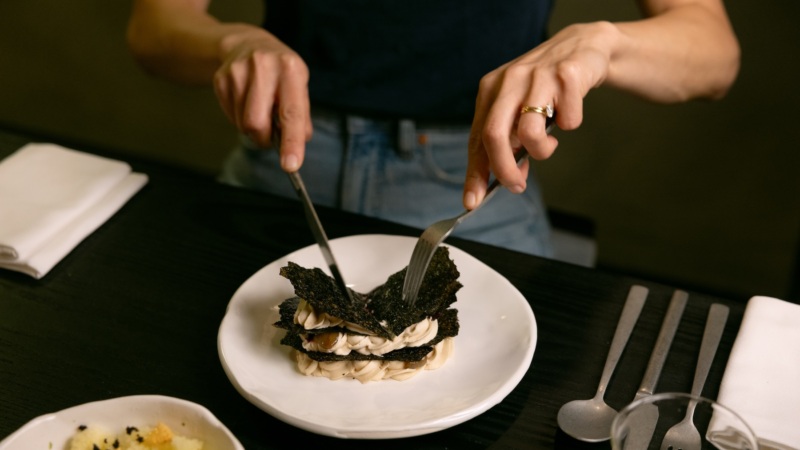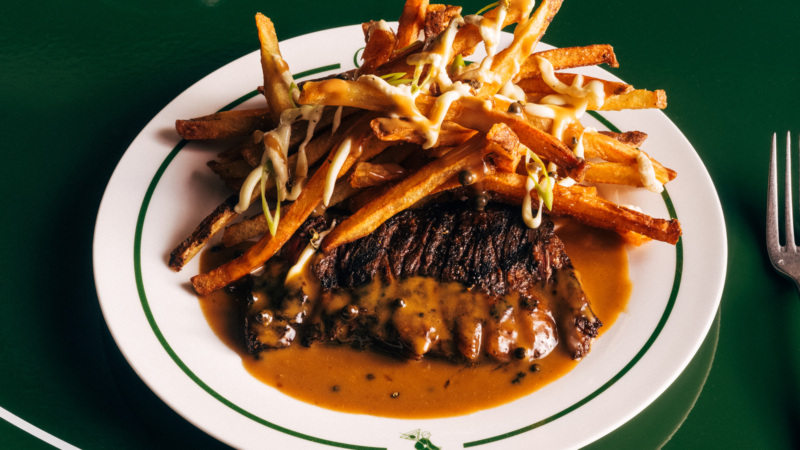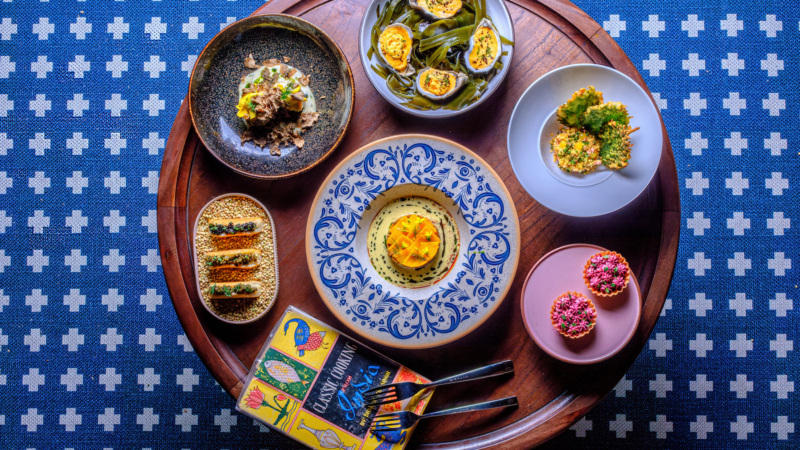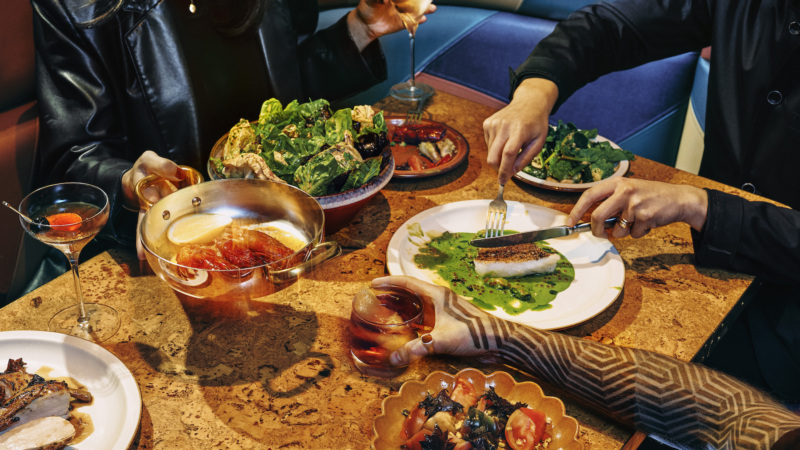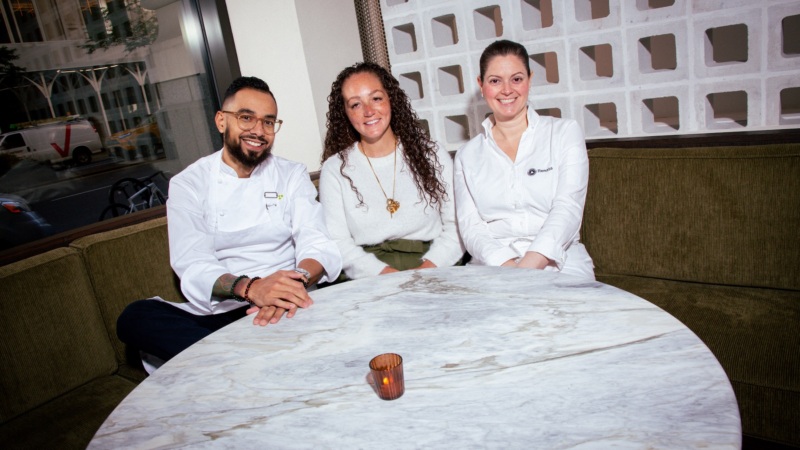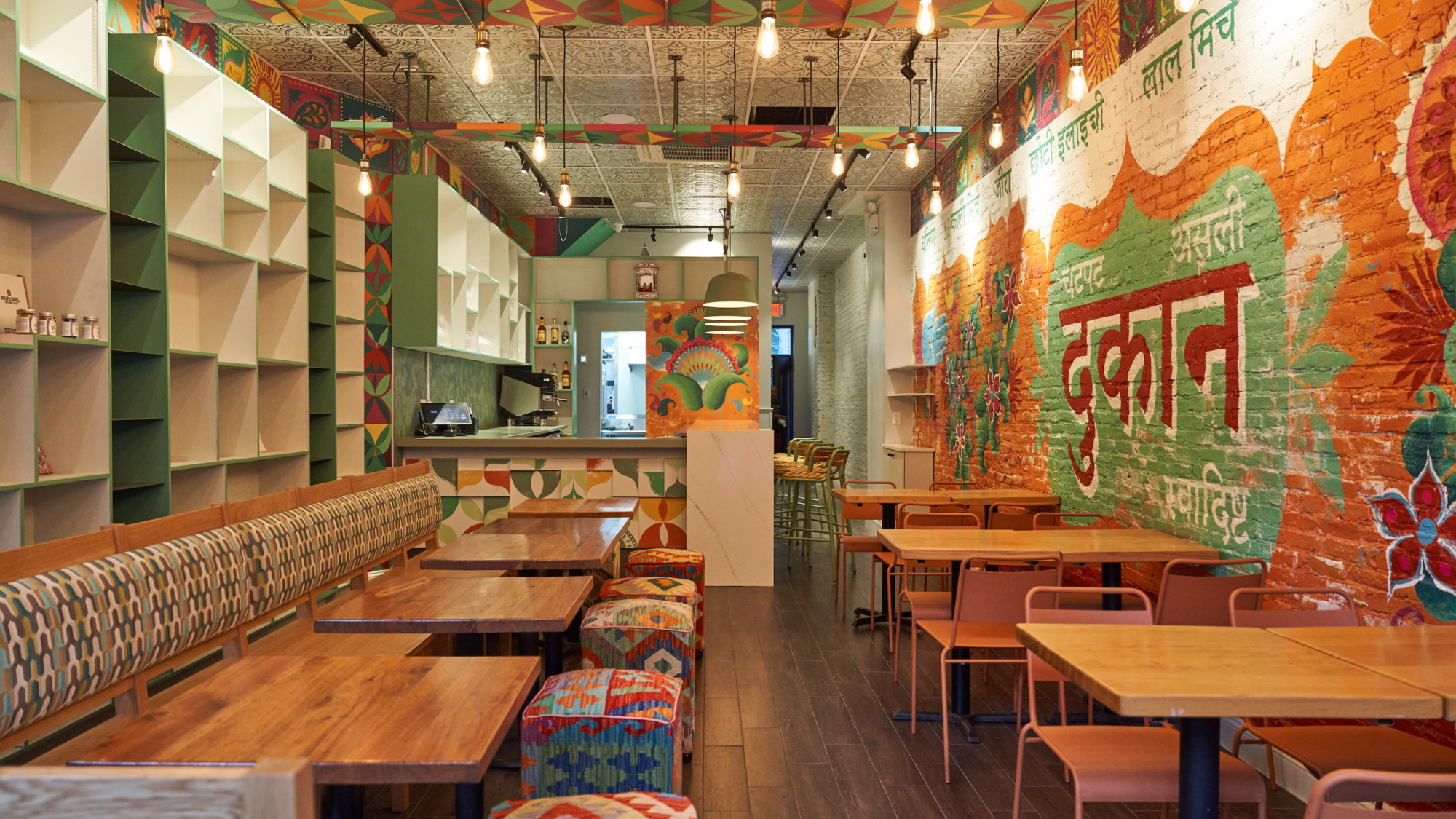
Everything You Need to Know About Masalawala & Sons, From the Dhamaka Team
Before you go to a restaurant, what do you want — or need — to know most? In our series, The Rundown, we’re sharing all the essentials about newly opened restaurants.
In this edition, we’re looking at Masalawala & Sons, the newest restaurant from the same duo behind Dhamaka, Adda, Rowdy Rooster, and Semma — restaurateur Roni Mazumdar and chef Chintan Pandya of Unapologetic Foods — opening on Thursday, Sept. 22, in Park Slope, Brooklyn. Here’s everything you need to know before you go.
1. If Masalawala sounds familiar to you, that’s because it is.
In 2011, Mazumdar and his father, Satyen, opened Masalawala in the Lower East Side, not far from where Dhamaka is. The original Masalawala closed in 2021, but now it’s back, with a new name (Masalawala & Sons), a new location (Park Slope), and a new menu. In other words, don’t expect it to be the same as it was before. “Other than my dad, nothing is the same as it was before,” Mazumdar notes.
“This is the restaurant I wanted to open 10 years ago, but couldn’t,” says Mazumdar. Masalawala was the first restaurant Mazumdar ever opened, and he opened it with the intention of showcasing the homestyle cooking he grew up with, and that his dad loved.
Instead, he says, it was a challenge to serve the food they wanted to serve. “Everyone wanted to have chicken tikka masala — that’s a dish I never had before in India — so we did it because that’s what people wanted, and that was the only way to survive; it was the No. 1 selling dish no matter what,” Mazumdar explains. “Before you know it, you’ve left behind the story you wanted to tell, and you start telling the one everyone wants to hear.”
A string of successful restaurants later — Adda, Dhamaka, Semma (formerly Rahi), and Rowdy Rooster — Mazumdar finally feels like the time is right to tell the story he and his father always wanted to with Masalawala. And now, he’s also got the ideal restaurant partner and chef — James Beard Award winner Chintan Pandya — to help them tell it.
2. It’s a biography, in restaurant form.
The story Mazumdar and Pandya are telling at Masalawala & Sons is Satyen’s biography; it’s the story of a man who lived and worked in India during a time of great change and who immigrated to America in 1996 with his family. Satyen was born in 1945 and two years later, India finally gained its independence. It’s also the story of a man who traveled all over India and loved sharing the cooking traditions he learned with his family.
“With Masalawala & Sons, you’re kind of traveling back in time to my father’s generation, which gets lost in time these days,” Mazumdar says. “Chintan really took the time to dig as deep as he does to bring [my father’s life experiences] into reality.” He says that both Pandya and his father overlapped in many of their shared taste memories; both lived and worked in Kolkata at one point for instance, and they worked closely together to develop the menu.
“That’s what gave birth to this menu,” Mazumdar explains. “You’re not cooking these dishes just following an age-old recipe; you’re actually using the same techniques, vessels, and getting as close to those ingredients as possible to bring you back to that moment in time.”
At the new Masalawala & Sons, Satyen continues to play “host” (Mazumdar says most people think of his dad as “Mr. Masalawala” and the restaurant’s logo is a portrait of Satyen).
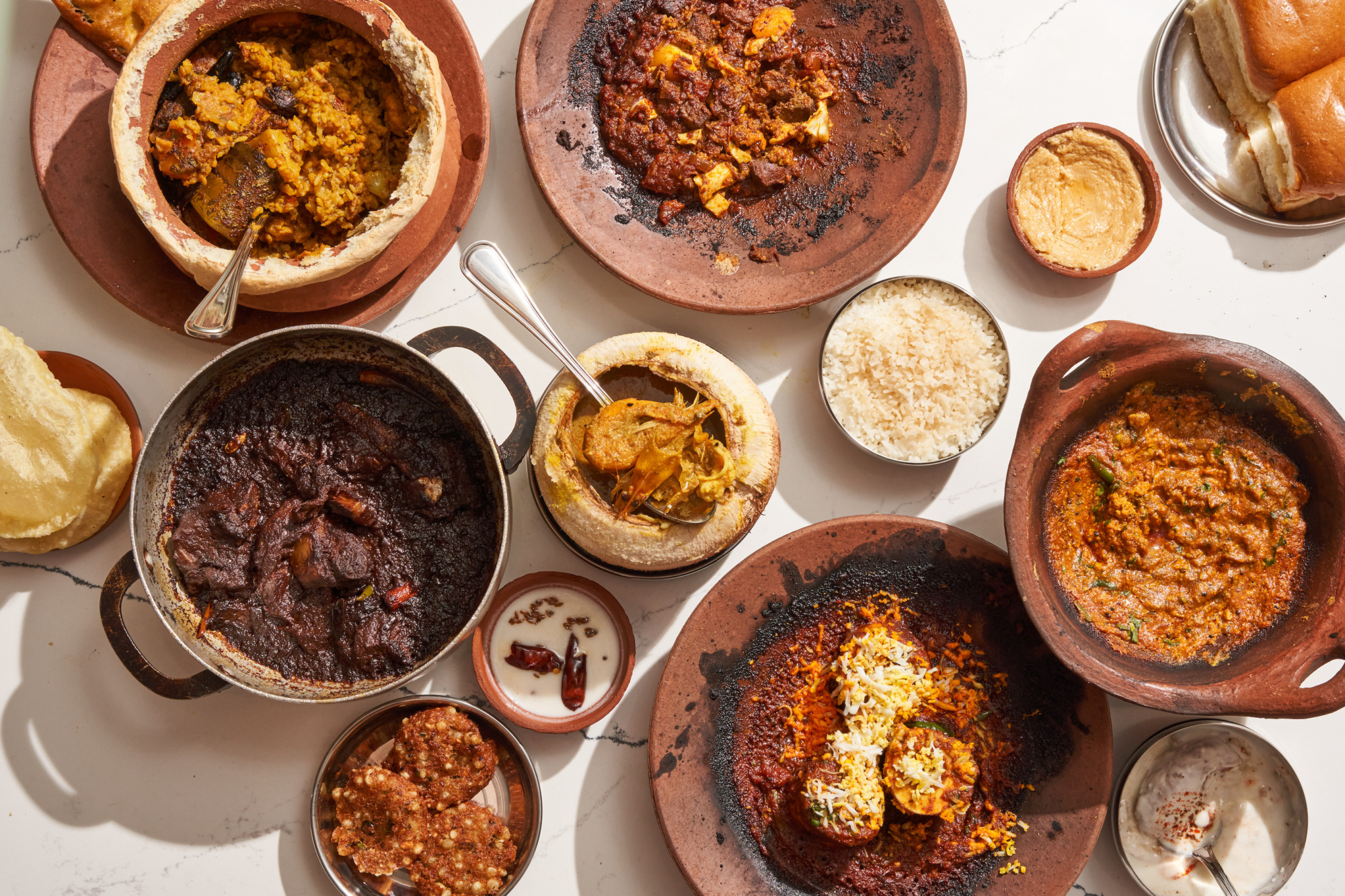
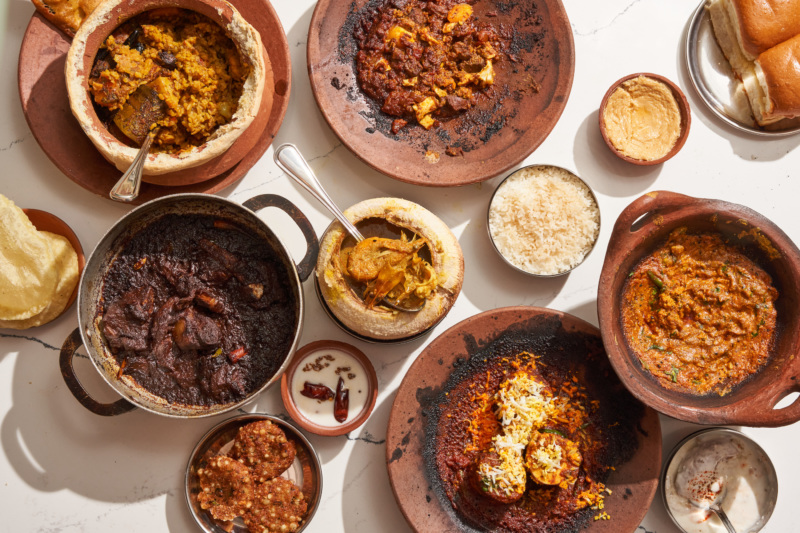
3. Expect to see dishes you likely haven’t seen anywhere else — at least not in a restaurant.
The menu at Masalawala & Sons isn’t limited to any one particular region of India, or any single style of cooking — it’s truly an amalgamation of the many different dishes that Satyen Mazumdar has loved over the past several decades. Many of the dishes are, however, cooked in clay vessels, and prepared fresh to order.
That means you’ll find dishes like macher dim, a dish of lightly poached hilsa fish roe poached in coriander and smoked chile, cooked in a clay pot, just the way Mazumdar’s grandmother would make it for his father in the 1950s. “This is a dish I never would have dared to put on a restaurant menu before,” says Mazumdar. Only five to seven orders of this dish will be available each night.
Another dish, the mutton yakhni pulao, was inspired by a Kashmiri shawl salesman who stayed with the family in one of their rooms in the mid 1970’s for sometime. The salesman often made the dish at the Mazumdar’s house using a pressure cooker, and Satyen always remembered it for its fragrance.
The Ripon Street Majja, a bone marrow in paya sauce, was another dish that left a strong impression on Satyen because he loved it so much — even though he’d never eaten beef before (and still doesn’t consume beef). He first had it when a friend handed him a piece of pao smeared with the bone marrow and sauce, and he thought it was delicious. Satyen described the dish to Pandya, who then did his best to recreate that taste memory.
At Masalawala & Sons, Pandya adds shaved eggs on top of the bone marrow, and serves it alongside fluffy pao bread. He’s cooking the bone marrow on a specially made clay pan that gets placed atop a live fire; that same clay pan is what gets brought to your table after the bone marrow is fired. “The way bone marrow is cooked in India is totally different, and I think we haven’t been exposed to it here,” says Pandya. “So when Roni’s dad explained that dish to me that he had back in the 70s, something just clicked — maybe this is the version people need to eat in New York now.”
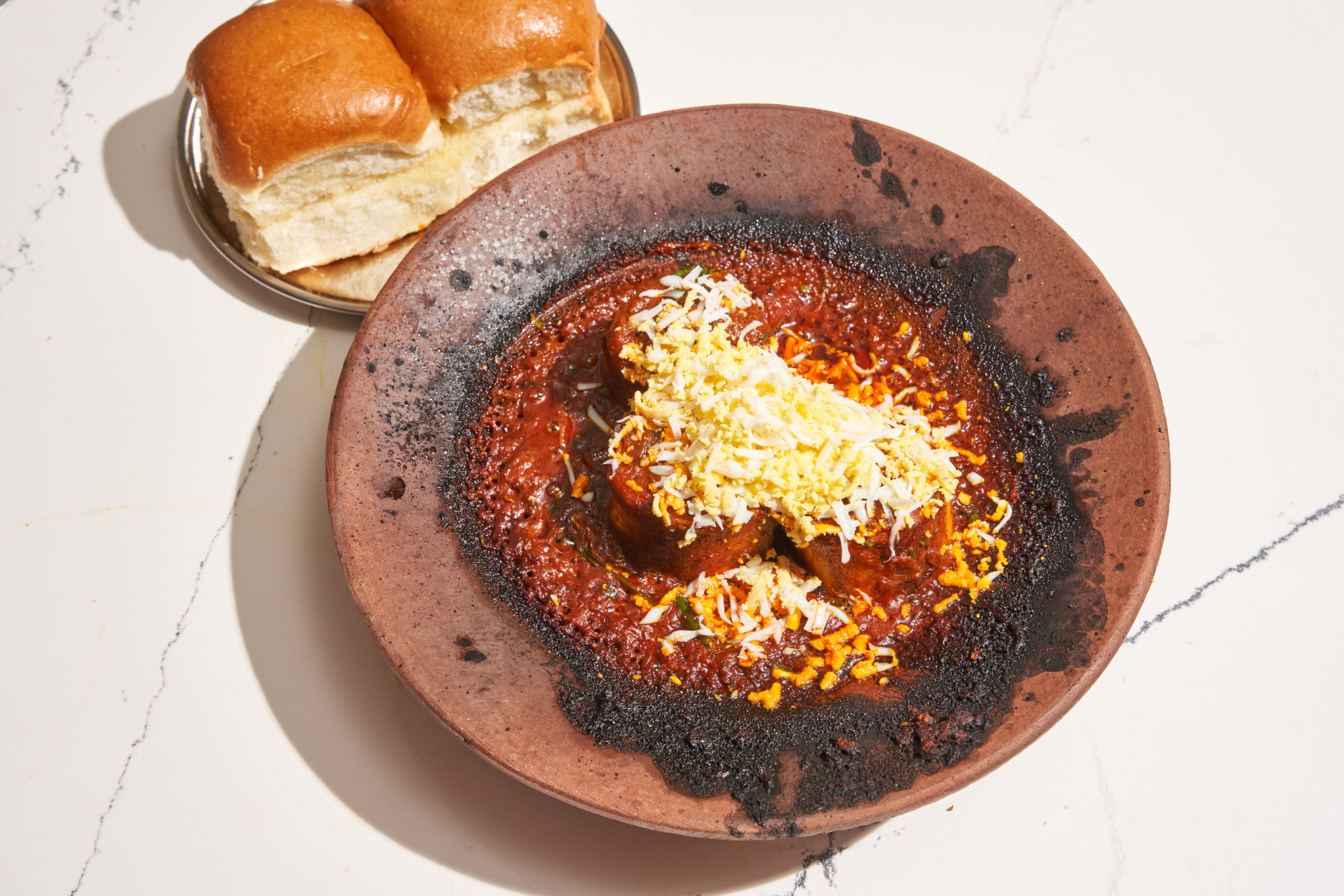
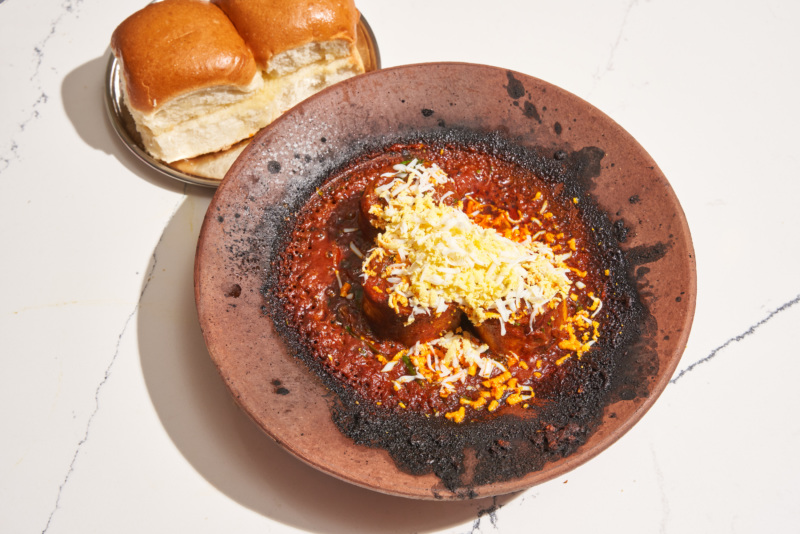
4. Don’t sleep on these three dishes in particular.
If you do head to Masalawala & Sons, do be sure to save room for these showstopping dishes in particular (in addition to the ones noted above): the daab chingri, the kosha mangsho, and the beguner khagina.
The daab chingri features prawns cooked inside a young green coconut, and it’s presented to you tableside inside the same coconut, where you’re able to scoop up bits of young coconut flesh, too. “Everything is just so smooth,” Mazumdar explains. “It’s on the milder side; it’s not supposed to be crazy spicy, but it’s smooth and buttery with the coconut milk and the coconut water.”
The kosha mangsho is a braised lamb dish that’s cooked to the point where it almost turns black, Mazumdar describes. It’s served with fried bread (luchi) and Mazumdar says it’s one of his favorites.
Another not-to-be-missed dish is the beguner khagina, an eggplant dish that’s finished off almost like a carbonara: it’s made with roasted and smashed eggplant that gets finished with an egg and served with chapati bread. “It’s this prime example of a really simple but delicious dish that I had no idea about until I heard about it from my dad,” Mazumdar says.
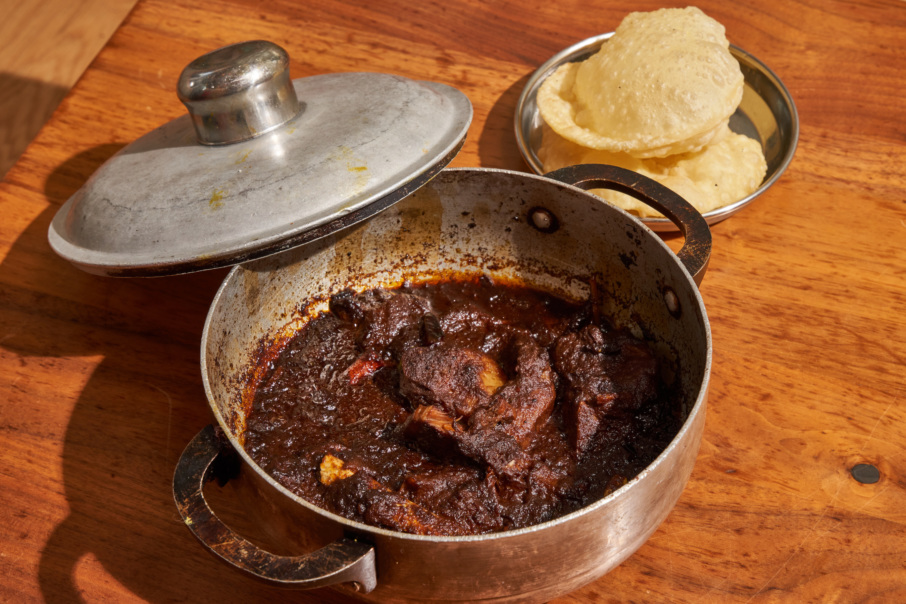
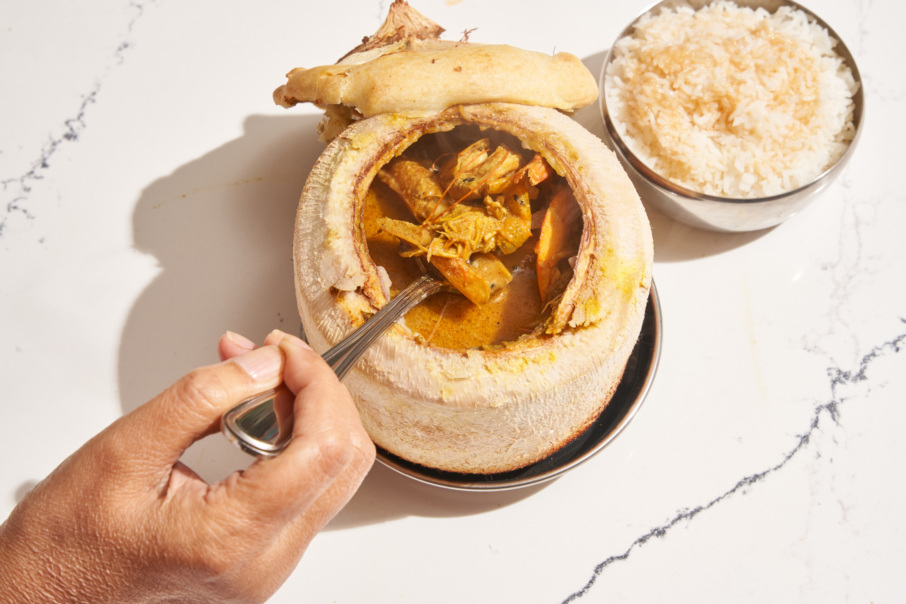
5. Save room for drinks.
The six cocktails at Masalawala & Sons were developed by Lucia Corichi (who also oversees cocktails for Dhamaka and Semma), and they incorporate many of the same ingredients you find in the food, like coconut-washed gin, turmeric, saffron, smoked chile peppers, and amchur (dried mango powder) — making them an ideal complement for your meal.
Ashley Peters, who recently joined Unapologetic Foods as their wine director, has put together a list that features wines from France and Spain, as well as the Finger Lakes and Italy.
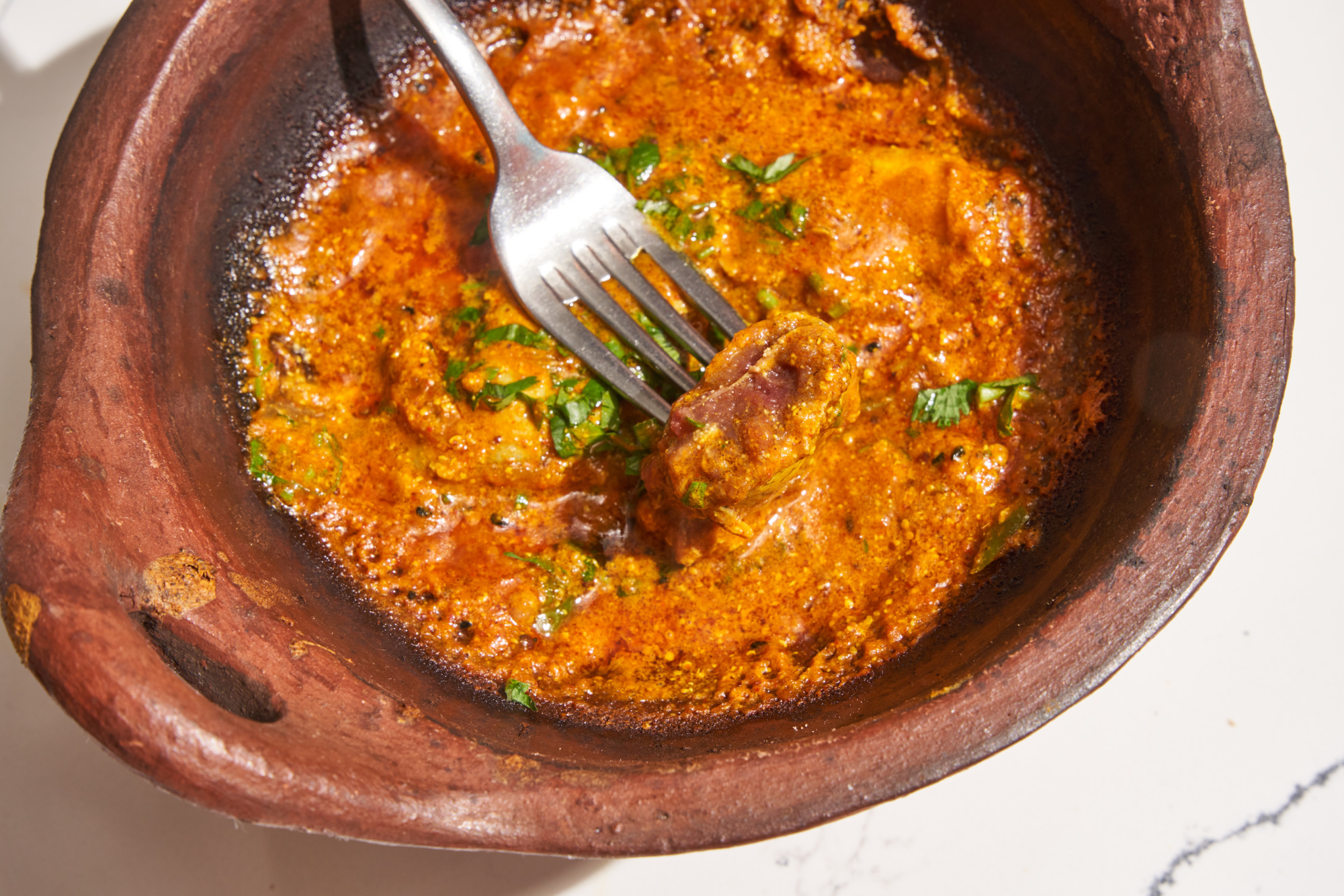
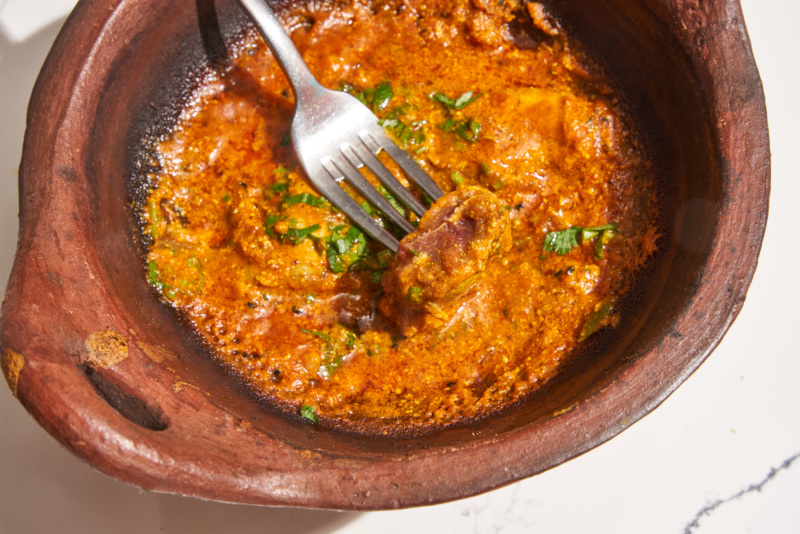
6. Do stock up on spices and condiments while you’re there, too.
All along the shelves on one side of the restaurant, you’ll find spices and products from small independent producers like Diaspora Co., Burlap & Barrel, and Elements Truffles (Masalawala translates to spice merchant, after all). Both Pandya and Mazumdar hope that locals will want to stop in for a meal as often as they stop by to pick up a jar of achar or some spices to cook with at home, too.
They said they designed the restaurant to be “celebratory” and colorful. In total, the new Masalawala & Sons is twice as large as the original, seating up to 30 diners inside and 30 guests outside in the backyard.
Most of all, they hope Masalawala & Sons becomes a true neighborhood restaurant and retail shop for locals. “Park Slope is a quintessential family neighborhood — and it just felt right to bring Masalawala here,” Mazumdar says. “I’m so happy we can finally tell our story here.”
Masalawala & Sons is open Tuesdays to Sundays from 5 to 10 p.m. and will open for lunch service beginning at 11 a.m. within the next few weeks.
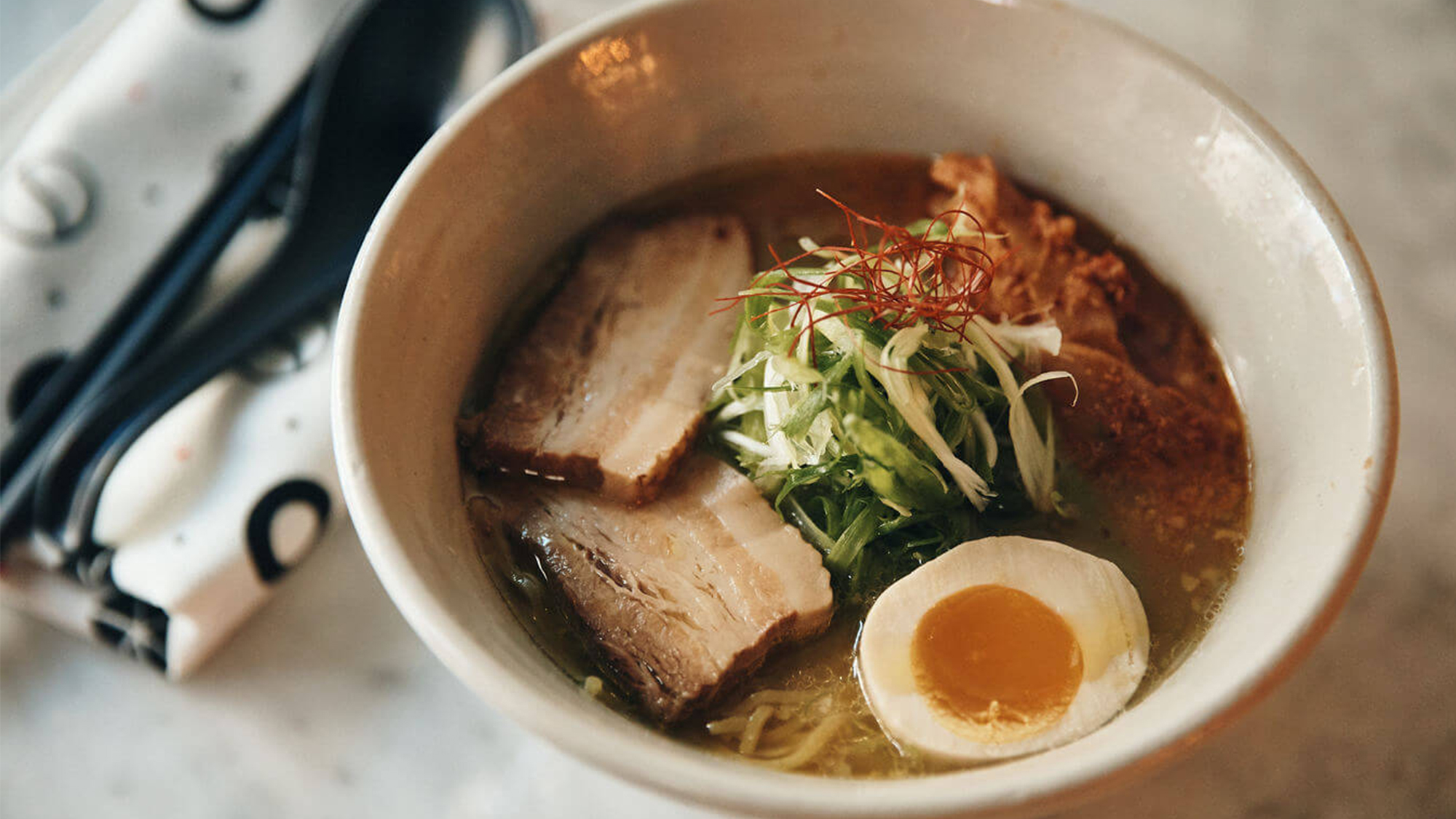
What to Eat and Drink in New York Right Now
Your biweekly dose of recommendations on what to eat, drink, and see in the city.





